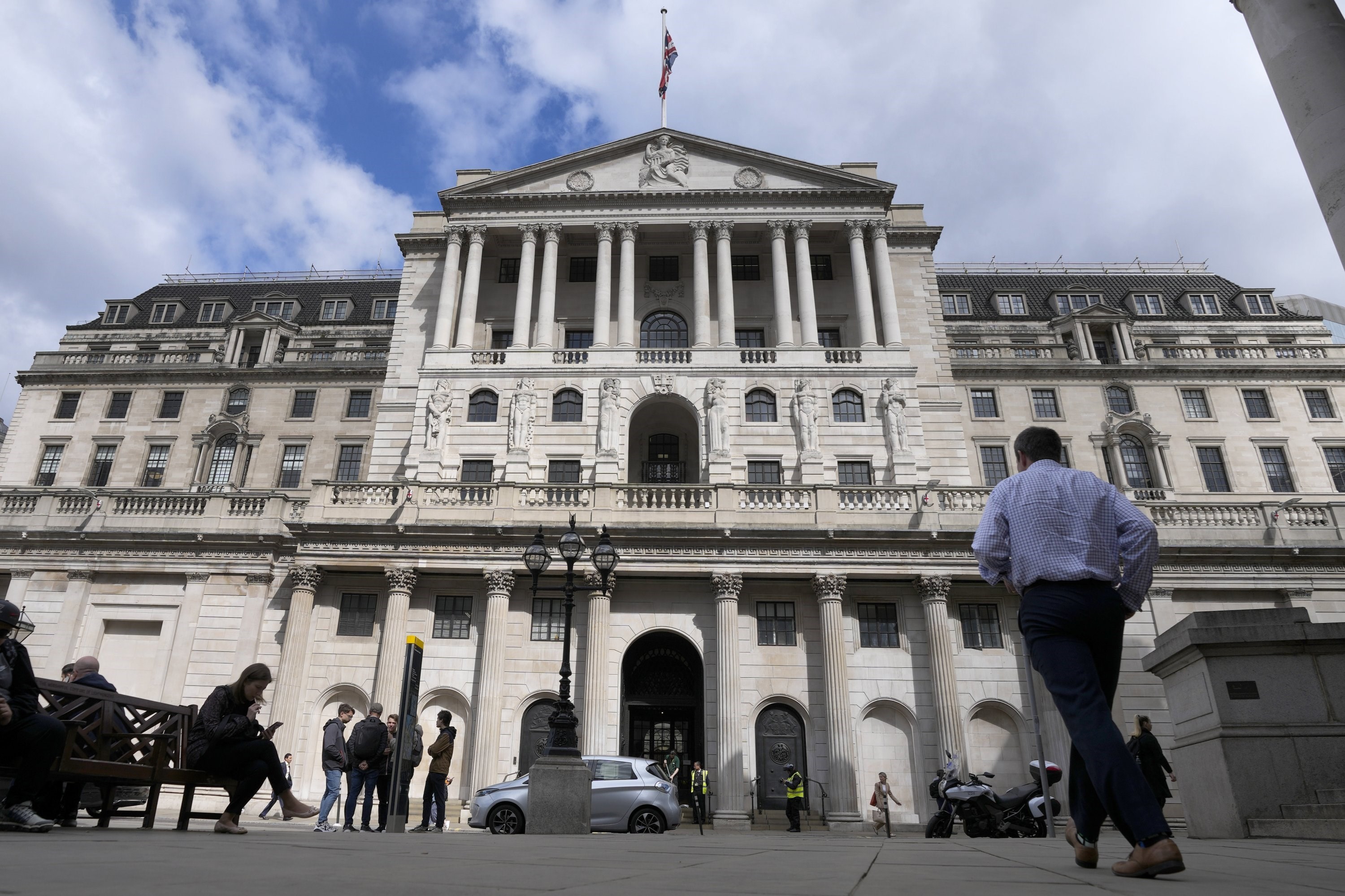
Even though banks claim the shutdowns are due to financial crimes and fraud, customers are often given almost no full explanation.
-

People walk past the Bank of England in London, UK, on May 5, 2022 (AP)
UK banks are closing over 1,000 accounts every working day, according to new data, which has fuelled the disparity of “debanking” and which prompted Nigel Farage to request a royal commission to investigate what he called a scandal.
Mere hours after the former Ukip leader disclosed that he was leading a website to campaign on behalf of people whose accounts had been shut, data showed a big number of accounts were shut.
Initially reported in the Mail on Sunday and obtained through a freedom of information request made to City watchdog the Financial Conduct Authority, it was revealed that in the years 2016-17, over 45,000 accounts were shut by banks, and the number has been increasing ever since to over 343,000 accounts in 2021-22.
Even though banks claim the shutdowns are due to financial crimes and fraud, customers are often given almost no full explanation. However, upon requesting subject access, Farage found that NatWest subsidiary Coutts closed his account partly over his political views.
Dame Alison Rose, chief executive of NatWest Group, later stood down after announcing she was the source of a BBC story that said Farage’s account was closed for commercial reasons. Peter Flavel, chief executive of Coutts, later followed and Farage is asking that NatWest Group’s chair, Sir Howard Davies, also step down.
That was followed by an apology from the bank as Rose claimed it was not policy to “exit a customer on the basis of legally held political and personal views,” noting that “freedom of expression and access to banking is fundamental to our society.”
Rose added that she had written a note to apologize to Farage for the “deeply inappropriate comments” made about him in a 40-page report filed by the bank and explaining why his account was closed down.
Farage told the media on Sunday about his willingness to have a royal commission to look into the matter but “provided it happened quickly”.
“I’ve just been inundated by small businesses, by folk all round the country. People in absolute fear, terror, lives being ruined, thousands of businesses being closed. These are people who have done nothing wrong whatsoever,” he told GB News, where he is also employed as a presenter.
Almost 90,000 individuals have been classed as “politically exposed persons”, which have led some politicians or their families to be turned down by banks, including MPs deemed to be potentially at risk of abusing positions for private gain.
Read next: UK banks discreetly monitoring clients’ social media: The Telegraph
Anti-Brexit campaigner Gina Miller called on the FCA on Friday and on the government to intervene to make sure that new parties and MPs can access banking services after digital bank Monzo informed her that her True and Fair party’s account would close in September.
Energy secretary Grant Shapps revealed that his and his family’s accounts have been shut because he is a politically exposed person, reportedly saying as well that one bank demanded 18 years’ worth of payslips before it would let him open an account.
Many regular citizens found themselves victims as well for holding perfectly legal cryptocurrency or gambling accounts, while other non-UK-born individuals have found their accounts shut down, usually after making or receiving external payments.
The Guardian displayed a few weeks before Farage’s news broke out, how a retired social worker Fiona Hancock doing humanitarian work across Ukraine had her account suddenly shut down by Lloyds.
She did not have any access to her £5,000 balance made of savings and pension payments. Then Lloyds sent her a check to her UK address, which was housing Ukrainian refugees.
There are about 75 million accounts in the UK.
The FCA in response stated: “We know that the total number of customers that banks have ceased doing business with for financial crime reasons is less than 0.2%. Tackling financial crime remains a priority of the FCA,” adding: “We have seen firms increase their monitoring of accounts over the past couple of years, which may account for the increase in the figures.”
In light of this, the government announced intentions to mend the rules around bank account closures which requires banks to give longer notice of an impending shutdown.
Tina McKenzie, policy chair of the Federation of Small Businesses, expressed: “In some cases banks are legally prevented from telling customers why an account has been closed,” adding: “But where possible, they should be told, so that if there has been a misinterpretation or misunderstanding, it can be swiftly resolved.”
Read more: UK ex-PMs’ entourage entail hefty costs on taxpayers: Politico





